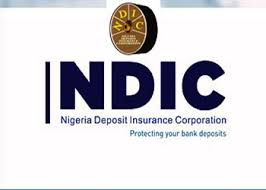The Nigeria Deposit Insurance Corporation (NDIC) reported that it had paid a total sum of N120,262,406 billion to depositors, creditors and shareholders of banks in-liquidation as at June 30 this year
A senior staff of the corporation, Tanko Ibrahim, made this disclosure in Abuja during the 2023 World’s Savings Day event organised by the NDIC with the theme “Conquer Your Tomorrow Through Savings” in Abuja.
Ibrahim disclosed that from the total claims paid by the corporation as at June this year, 444,010 insured depositors of Deposit Money Banks (DMBs) got N8.269 billion, while uninsured other got N102,092 billion just as 1,027 creditors were paid N1.281 billion and 980 shareholders received 4.895 billion.
He further clarified that 97,419 insured depositors of microfinance banks (MFBs) were paid N3.369 billion, while the uninsured received N20.206 million, adding that 1,833 insured depositors of Primary Mortgage Banks (PMBs), were paid N124.764 million compared to N211.436 million paid uninsured depositors
The deposit insurance expert told the student participants at the event that if a bank cannot be assisted by any of the resolution options, and therefore fails, NDIC would ensure the liquidation of such a lender is done in an orderly and efficient manner.
He expatiated: “Liquidation commences after the revocation of operating license by the CBN. It involves: revocation of operating license; orderly closure; settlement of claims – depositors (priority), creditors and shareholders where possible; and cost effective realisation of assets.”
In his paper delivered at the forum, Principal Manager, Research Department of the corporation, Dr Waziri Galadima, charged the students to be prudent in spending, excellent managers of resources and base their spending on budgetary plans with emphasis on prioritisation of needs.
He said: “Why is it important to save? Throughout your life, you will be faced with many decisions about saving and spending. Your goals can vary from smaller purchases such as a new smartphone to larger purchases, such as a car or a house, to long-term savings for any unknowns.
“Everybody should know how to create a budget, how to track spending, and how to save for the future”, he added.






